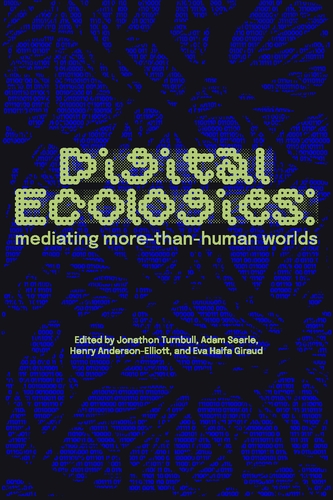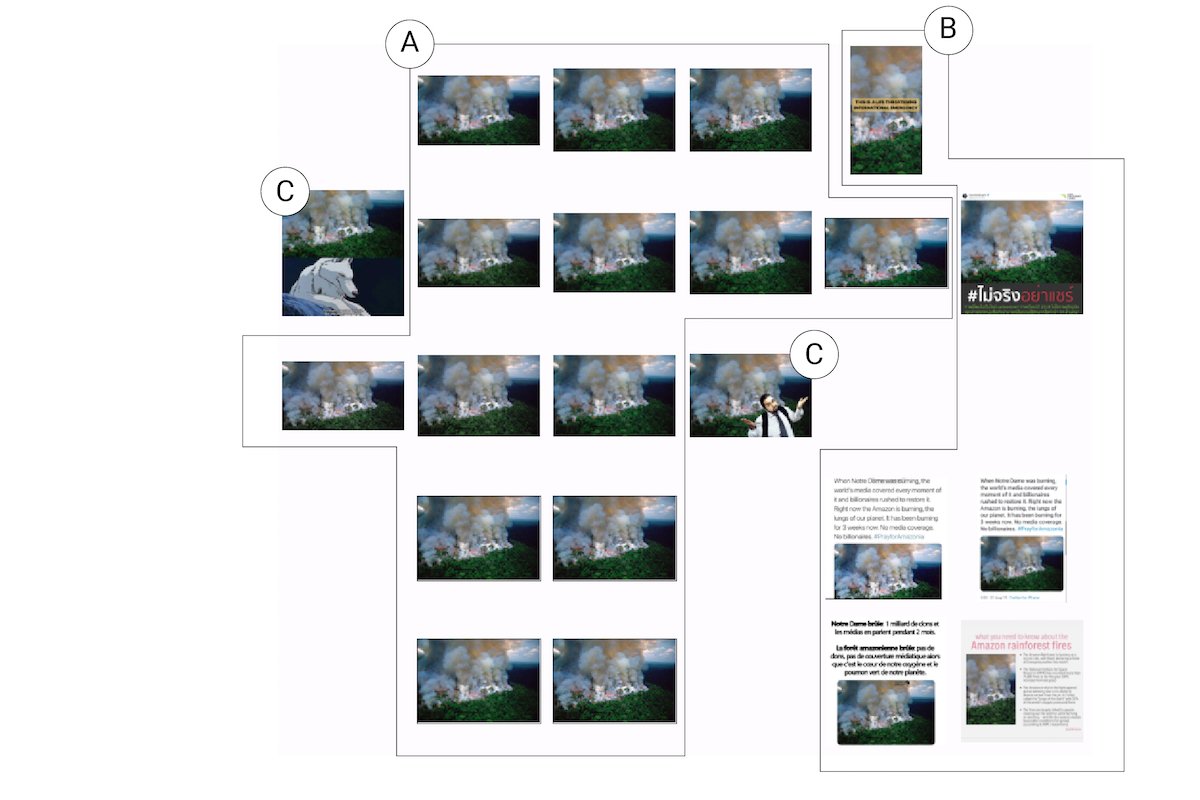new chapter on "#amazonfires and the online composition of ecological politics" in digital ecologies book
December 10, 2024

How are digital objects – such as hashtags, links, likes and images - involved in ecological politics?
Liliana Bounegru, Gabriele Colombo and I explore this in a new chapter on”#amazonfires and the online composition of ecological politics” as part of a book on digital ecologies: mediating more-than-human worlds which has just been published on Manchester University Press.
You can get the book here, read our chapter online or download the PDF.
Here’s the book blurb:
Digital ecologies draws together leading social science and humanities scholars to examine how digital media are reshaping the futures of conservation, environmentalism, and ecological politics. The book offers an overview of the emerging field of interdisciplinary digital ecologies research by mapping key debates and issues in the field, with original empirical chapters exploring how livestreams, sensors, mobile technologies, social media platforms, and software are reconfiguring life in profound ways. The collection traverses contexts ranging from animal exercise apps, to surveillance systems on the high seas, and is organised around the themes of encounters, governance, and assemblages. Digital ecologies also includes an agenda-setting intervention by the book’s editors, and three closing chapter-length provocations by leading scholars in digital geographies, the environmental humanities, and media theory that set out trajectories for future research.
Here’s the abstract for our chapter:
How are digital objects such as hashtags, links, likes, and images involved in the production of forest politics? This chapter explores the online composition of environmental events, with a focus on the 2019 Amazon forest fires. Through a series of empirical vignettes with data and visual material from online platforms we examine how digital platforms, objects, and devices perform and organise relations between forests and a wide variety of societal actors, issues, and cultures – from bots to boycotts, agriculture to eco-activism, scientists to pop stars, Indigenous communities to geopolitical interventions. In particular, in the case of the Amazon fires the chapter explores the algorithmic meditation of environment events; which kinds of concerns, framings, entities, and invitations to action ‘do well’ according to online platforms; how relations between different concerns and groups are invited and displayed; and the roles of images in online activity around the fires. Looking beyond concerns with the representational (in-)fidelities of forest media and thinking along with research on ontological politics and the social lives of methods, we consider how collaborative methodological experiments in repurposing digital objects and online materials might contribute to tracing, eliciting, and unfolding the contested roles of forests in society.
